Afghanistan War, CIA Sponsored Terror, Civil Liberties, Criminalizing Dissent, Gaza, Guantanamo, Habeas Corpus, Human Rights, Iraq War, NSA Spying, Political Prisoner, Prison Industry, Surveillance, Targeting Muslims, Torture, Truth to Power, War Resister
Podcast: Play in new window | Download
Updates:
- Mumia Spurs Bill To Block Publicity-Seeking Criminals (Son of Sam Law)
- Guantanamo Bay Prisoner Files Historic Lawsuit Against Obama Over Force-Feeding
——

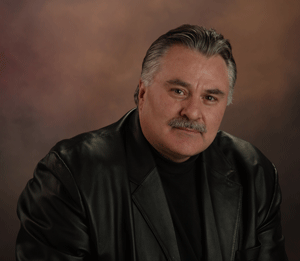
Lawyers You’ll Like – Charlie Abourezk
As part of our Lawyers You’ll Like series, we talk with attorney Charles Abourezk about his work with the Native American community in South Dakota. Charles is a trial attorney, author and film maker. His documentary A Tattoo On My Heart: The Warriors of Wounded Knee 1973 is a gripping documentation of those American Indian men and women involved in the siege. Charles is the Chief Justice of the Rosebud Sioux Tribe Supreme Court, he’s also member of South Dakota Advisory Committee to U.S. Commission on Civil Rights. He’s the son of James George Abourezk, former Democratic United States Representative and United States Senator where he was generally viewed as critical of US foreign policy in Israel and Palestinian.
Attorney Charlie Abourezk:
- The Rosebud Sioux Tribe is the second largest tribe in South Dakota. There are nine total tribal governments in the state. It’s where I grew up.
- I spent most of my adult life on the Pine Ridge Reservation which has been the poorest county in the United States.
- I went to law school, long after I worked for a number of Indian organizations including a Native American NGO that worked at the UN in Category 2 status.
- The Pine Ridge Reservation is the second largest reservation in the United States, located in south western South Dakota. It’s a huge land mass, takes about an hour and a half to drive diagonally across the reservation. There’s very little economy. The geography is very poor, it lends itself to cattle grazing but not much in terms of raising crops.
- Wounded Knee was the site of the 1890 massacre in which almost 300 American Indians from several different tribes were killed by the U.S. Army. They were surrounded and essentially murdered on that spot.
- So, in 1973, there had been a lot of racial discrimination and racially motivated killings of Indian people, the American Indian Movement returned and joined forces with the traditional people who had long been neglected on the reservation.
- As a result they decided to engage in a protest. They chose the site of the massacre at Wounded Knee, to stage that protest.
- They set up sort of a line there, with the government and US Marshalls, along with Dick Wilson’s followers who were armed and were called the goon squad and formed the other side of that line. The siege lasted 71 days.
- It finally dismantled and number of people were prosecuted as a result of that.
- At Wounded Knee, two Indian people killed and one Marshall wounded.
- We set up a recording studio right at the Wounded Knee school, and just took people’s stories. I did the interviews, they were really powerful. There were some stories that didn’t fit with the arc of the film but were incredible. I’m glad I documented it then, because I think of the people in the documentary, 7 or 8 have now passed away.
- I continue to be a strong advocate for tribal sovereignty, self determination and the rights of individuals especially within the dynamic of racial discrimination which at times in South Dakota have been as bad as the south is toward African Americans.
- I helped affirm and preserve the boundaries of the Yankton Sioux Reservation, that went up to the Supreme Court twice. I was the lead council when it finally concluded, we were able to win that one.
- I was a former Supreme Court Justice on the Pine Ridge Reservation for their Supreme Court and I retired from that position.
- Except for limited jurisdiction the Federal Government had on criminal matters, the civil jurisdiction for incidents which occur within the reservation lie with the tribal court as do criminal misdemeanors for tribal members and non tribal members meaning Indians from other tribes that happen to be living on the reservation.
- In the Native American view you can’t really have winners and losers, you have to try to restore the harmony or the balance within the tribe.
- The American government adopted the British style of colonialism as did the Israelis when they began to colonize parts of Palestine. It kind of goes in 4 steps.
- A disruption of traditional agriculture and food gathering, which out here was done in two ways, killing off the buffalo and secondly constraining them from moving around in a wide arc for hunting and gathering – by putting them on the reservation they stopped that.
- Transfer commonly owned land into private ownership, to turn land into a commodity that can be bought and sold. They did that through what’s called the Daws Act or the Allotment Act in the late 1800s.
- Theodore Roosevelt called that act a “might pulverizing machine” with which to break up the tribal mass.
- The third step was to develop a native ruling elite. In this case they first developed “paper chiefs” then in the 1930s developed modern tribal government.
- Last step, develop an educated elite. Of course any colonizer anywhere, that’s the step that always back fires.
- The American Indian Movement was born from the children of the parents who were relocated into cities trained as workers.
- They were the ones who came back home and joined forces with the traditional people and stood up against racism and in favor of tribal sovereignty and tribal self determination.
- You see many parallels with that and what’s happening to the Palestinians in the West Bank and Gaza. Dr William Julius Wilson
Guest – Charlie Abourezk, from Rapid City, South Dakota and is a trial attorney, longtime activist and community organizer in the native American community in South Dakota. He is also a documentary film maker, his most recent is the feature length documentary “A Tattoo On My Heart: The Warriors of Wounded Knee 1973” which played on public television stations around the United States. He is the current Chief Justice of the Rosebud Sioux Tribe’s Supreme Court and a member of the South Dakota Advisory Committee to the US Commission on Civil Rights. His client base is made up largely of Native Americans, tribal schools and Indian tribal governments, but he also represents plaintiffs in civil rights litigation. He will have a book coming out this next year entitled “A Mighty Pulverizing Machine: The Continuing Colonization of American Indians.”
——-
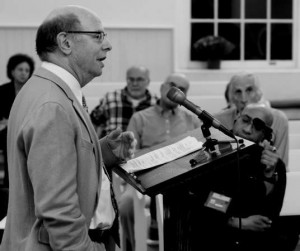
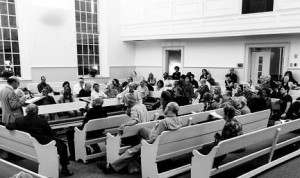
From Guantanamo to Wikileaks: Taking on the State In a Post 9/11 World.
Our own Michael Ratner, President Emeritus, Center for Constitutional Rights (CCR), past president, National Lawyers Guild; Chair, European Center for Constitutional and Human Rights delivered a talk last week titled ‘From Guantanamo to Wikileaks: Taking on the State In a Post 9/11 World.’ Michael was honored with a PathMaker to Peace Award by the Brooklyn For Peace Organization for his consistent work in litigation against government spying and surveillance of activists including the targeting of Muslims particularly after 9/11.
Law and Disorder Co-host Attorney Michael Ratner, President Emeritus of the Center for Constitutional Rights (CCR), a non-profit human rights litigation organization based in New York City and president of the European Center for Constitutional and Human Rights (ECCHR) based in Berlin. Ratner and CCR are currently the attorneys in the United States for publishers Julian Assange and Wikileaks. He was co-counsel in representing the Guantanamo Bay detainees in the United States Supreme Court, where, in June 2004, the court decided his clients have the right to test the legality of their detentions in court. Ratner is also a past president of the National Lawyers Guild and the author of numerous books and articles, including the books Who Killed Che? How the CIA Got Away With Murder, The Trial of Donald Rumsfeld: A Prosecution by Book, Against War with Iraq and Guantanamo: What the World Should Know, as well as a textbook on international human rights.
———————————————————————————-

Please help support Law and Disorder, the show is now a sponsored project of Fractured Atlas, a non-profit arts service organization. Contributions for the charitable purposes of Law and Disorder must be made payable to Fractured Atlas only and are tax-deductible to the extent permitted by law.
Afghanistan War, Civil Liberties, Climate Change, Criminalizing Dissent, FBI Intrusion, Gaza, Human Rights, Iraq Veterans, Iraq War, Targeting Muslims, Torture, War Resister
Podcast: Play in new window | Download
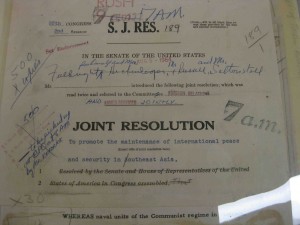
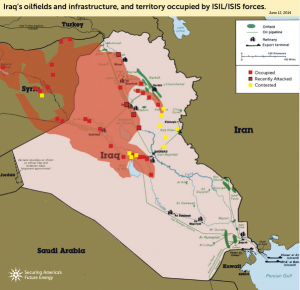
The Legality of War Powers: Michael Ratner
Law and Disorder co-host Michael Ratner explains war powers in the United States and questions the legality of President Barack Obama decision to launch attacks against the Islamic State using the 2001 Authorization To Use Military Force. Michael Ratner and Jules Lobel with the Center for Constitutional Rights have brought a number of cases challenging the decision to go to war including Vietnam, El Salvador and Grenada
Attorney Michael Ratner:
- I’ve spent as a number of us had a lot of our lives trying to restrain U.S. war powers. The U.S. particularly the president or the Congress together going to war around the world.
- It’s been a task that has been singularly unsuccessful, starting with Vietnam where we brought case after case. Only at the very end of the war really did Congress finally act to restrict the president after there were secret wars carried out in Cambodia, in Laos, not just Vietnam.
- Right now the president hasn’t asked for any authority from Congress to either bomb targets in Iraq that he claims are Islamic state targets or presumable if they begun it bombing in Syria, again targets he claims that are Islamic state targets. He’s not asked for any authority.
- He has of course had to use some funding that Congress I think will approve if he asks for more. That is not considered giving authority by Congress, just because they fund a war.
- Coming out of Vietnam, Congress did sort of a mea culpa. They said well, the president dragged us into this war, we passed this Gulf of Tonkin Resolution which was this open ended resolution that said the president could do what ever he wanted in Vietnam. He kept fighting the war based on this broad authorization that Congress gave him over a false incident. . .
- The Gulf of Tonkin Resolution you could liken to the authority Congress gave the president to go to war in Afghanistan called the Authorization to Use Military Force.
- (Still back to Vietnam) So Congress passes what’s called The War Powers Resolution. Congress said to itself, we don’t want to be in the situation like Vietnam again.
- The president, yes is required to go to Congress before he can go to war with any country. The framers were very clear, we don’t want a president making war on his own.
- You get to Vietnam and Congress says we’re going to make a special statute. You still need a declaration of war or a special passage by Congress of a statute authorizing war before you can make war. But in just in case the president goes in to a country without getting a declaration from us or a statute allowing it we’re going to say he can only stay in that country for 60 days.
- After 60 days he’s required to pull out all troops from that country.
- There’s never been any compliance with the War Powers Resolution in the history of our country – where after the 60 day clock, the president has pulled out the troops.
- I’ve litigated that with El Salvador when the U.S. sent in “advisors” into El Salvador, we’ve litigated it in Grenada and other places.
- We litigate these on 3 bases. Non compliance of the War Powers Resolution, Secondly non-compliance with the U.S. Constitution which is the Congress has to declare war not the president, and third non-compliance with the U.N. Charter which says there can be no use of force by any member state, unless its self defense or the UN Security Council approves it.
- The problem here isn’t really a problem of law. The problem here is the problem of having a hegemonic imperialist country that dominates the world through force.
- So that turns us back to where we are right now.
- Obama has two justifications – one is the original grant of authority to bomb and go and use force and U.S. troops in Afghanistan called the Authorization to Use Military Force passed shortly after 911 in 2001 which basically said the president could use force to go after the perpetrators of 911, those who harbored them or those who aided and abetted them.
- In the case of the Islamic State they’re at war with has been denounced by al-Qaeda, so they’re certainly not part of a 911 conspiracy at all.
- There’s no question that he’s illegally bombing the Islamic State in Iraq, illegally bombing them to the extent he is in Syria.
Law and Disorder Co-host Attorney Michael Ratner, President Emeritus of the Center for Constitutional Rights (CCR), a non-profit human rights litigation organization based in New York City and president of the European Center for Constitutional and Human Rights (ECCHR) based in Berlin. Ratner and CCR are currently the attorneys in the United States for publishers Julian Assange and Wikileaks. He was co-counsel in representing the Guantanamo Bay detainees in the United States Supreme Court, where, in June 2004, the court decided his clients have the right to test the legality of their detentions in court. Ratner is also a past president of the National Lawyers Guild and the author of numerous books and articles, including the books Who Killed Che? How the CIA Got Away With Murder, The Trial of Donald Rumsfeld: A Prosecution by Book, Against War with Iraq and Guantanamo: What the World Should Know, as well as a textbook on international human rights.
———
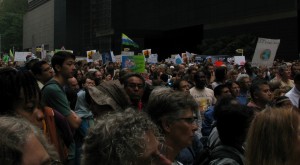
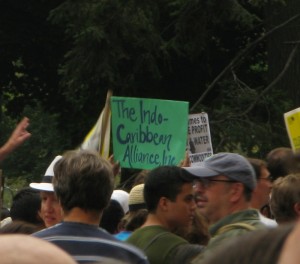
The People’s Climate March and the United Nations Climate Summit
We hear the voices from the climate march held in New York City, a large-scale activist event to advocate global action against climate change. The march winded through the streets of New York Sunday, September 21, 2014. Initially called by 350.org, the environmental organization founded by writer/activist Bill McKibben, the march has been endorsed by nearly 400 organizations, including many international and national unions, churches, schools and community and environmental justice organizations. The action is intended to coincide with the UN Climate Summit this week as U.N. Secretary General Ban Ki-moon invited leaders of government, the private sector and civil society to arrive at a long term solution for climate change.
——–
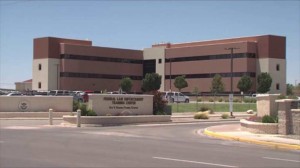
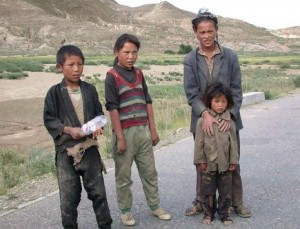
National Immigration Project
Last month the National Immigration Project of the National Lawyers Guild and several other groups sued the federal government to challenge its new and unlawful “fast-track” expedited removal policies that are being used against mothers and children detained in Artesia, New Mexico. Artesia is a remote detention center hundreds of miles from the nearest city. Lawyers with the NIP have collected evidence showing the government disregarding and pushing mothers and children through a deportation process making it nearly impossible for them to consult attorneys, prepare claims for asylum or any defenses to deportation. A class action lawsuit was brought by the Northwest Immigration Rights Project challenging the treatment of unaccompanied children in California with the average of 10 years old.
Paromita Shah:
- Starting in early April the government began to see a surge in arrivals of families – of mothers and children and sometimes children who came by themselves.
- Predominantly these children and families come from countries Honduras, Guatemala and El Salvador.
- They fled their home countries for a variety of reasons, mostly to escape what was horrific atrocities they experienced.
- They went to other countries as well, since other countries have seen a 700 percent increase in asylum claims. Costa Rica and Bolivia.
- The surge is not new. The surge actually began about 5 years ago when people were reporting an exponential increase of children coming across the border and no one knew what to do about it.
- From the stories we’ve heard from many of our members they are fleeing horrific atrocities and came to the United States to seek refuge here.
- The National Immigration Project of the National Lawyers Guild and the ACLU and a number of organizations sued the federal government to challenge its policies that denied a fair deportation process to the families and the children who fled this extreme violence.
- The primary focus of our argument is that these people weren’t given a chance to apply for asylum.
- We are violating our laws that relate to asylum, that relate to the convention against torture. These are laws not only in the United States but also international treaties that we’ve signed onto.
- If you fled a country that abused you and injured you, you would come to the United States border. At that point our laws set up a process called expedited removal. It’s a two stage process.
- The first step includes an interview with asylum officer to evaluate if you have a credible fear. When I say border that’s at any point of entry in the United States.
- Anywhere within 100 miles of the border (U.S.) because that’s how we define the border.
- Two thirds of the population of the United States lives within 100 miles of the border.
- Artesia New Mexico is a federal holding cell for the 672 people who are now detained there.
- If you’re a child that doesn’t have an adult with them you’re supposed to be treated differently under this process. They are not as a practice supposed to be put into expedited removal because of their age. You will have a chance to apply for asylum ( which is incredibly difficult) because you apply without an attorney.
- There are children in New Jersey, Washington state, Texas, L.A., and Florida.
- Children can’t always talk if they were raped or recruited into a gang or brutalized by a gang.
- J.E.F.M. v. Holder
- The irony of this whole process is that Artesia is in New Mexico. The immigration court that’s holding these hearings around Artesia is in Arlington, Virginia.
- They’re conducting these hearings by video.
Guest – Paromita Shah, associate Director of the National Immigration Project. She specializes in immigration detention and enforcement. She is the contributing author and co-presenter of the Deportation 101 curriculum.
———————————————————-
Afghanistan War, CIA Sponsored Terror, Civil Liberties, Criminalizing Dissent, Gaza, Human Rights, Iraq War, NSA Spying, Prison Industry, Surveillance, Targeting Muslims, Truth to Power, War Resister
Podcast: Play in new window | Download
Updates:
——–

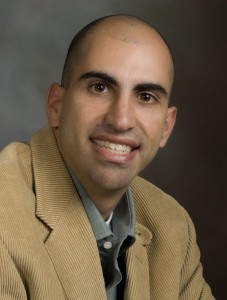
University of Illinois Chancellor Wise Going Forward With Salaita Appointment To Board of Trustees Vote
Last month, the University of Illinois rescinded the job offer of Professor Steven Salaita who wrote controversial social media posts about the war in Gaza. This raised serious concerns under established principles of academic freedom. Professor Salaita was basically dehired from the American Indian Studies program at the University of Illinois at Urbana-Champaign because of his statements on social media criticizing Israel’s conduct of military operations in Gaza. We reported weeks ago on Law and Disorder that scholars from law schools around the country came out with a very strong letter condemning the decision of the University of Illinois to dehire Professor Salaita. FOIA Email Link
Professor Katherine Franke:
- Professor Steven Salaita until recently was a tenured professor at Virgina Tech and was well known in English departments across the country and also among scholars who worked in colonialism and post colonialism studies. He developed a really rich body of work thinking about Native American rights, native people’s rights in the United States and connecting them to Palestinian rights in particular internationally.
- Read Professor Katherine Franke’s second letter here.
- He was a well sought after scholar and was hired by the University of Illinois in their American Indian Studies program in a process that started last fall.
- The department unanimously voted him an offer and this summer the university started to get pressure from outside donors, some of their alums and advocacy groups to not finalize the offer because of some tweets Professor Salaita sent out over the summer related to the Israeli attacks in Gaza.
- The emails to the chancellor were released showing that large six figure donors had seen those tweets or learned of them and said you cannot hire this guy or I will withdraw my future giving to the universities.
- So, the chancellor let Steven know that she was not going to finalize his offer even though they already negotiated his teaching schedule, he’s already rented an apartment, they had already negotiated his moving expenses.
- Right now he has no job, no income, no where to live.
- It’s the most recent iteration of what has been a rather well organized, well financed campaign in the United States in particular to purge the academy of scholars and even graduate students who are doing work that is either sympathetic to the idea of Palestinian sovereignty or rights or critical of Israeli state policy particularly the occupation.
- It was so obviously a violation of the fundamental right of academic freedom.
- I’ve only learned of his scholarship as a result of this campaign and his termination from the University of Illinois.
- I explain to Chancellor Wise in the letter that I sent, that not only will I not come to the university to speak in an official capacity but I will come to Urbana-Champaign and meet off campus with faculty and students, and members of the communities about these issues of academic freedom.
- Their strategy has been to portray any criticism of Israeli state policy or any criticism of political Zionism as uncivil or as a form of hate speech, but more importantly to appeal to a civility norm. That its not nice. That it creates an unwelcome learning environment for students, particularly jewish students.
- To see her parroting that language (Chancellor Wise) and for Chris Kennedy to parrot that language says to me that they’ve been reached by these organized operatives from the outside about how to message this termination.
- I don’t believe there is a civility norm at stake here and I think we actually shouldn’t have one in a university setting. We ought to take on uncivil ideas, ideas that are troubling, that are uncomfortable and unpack them in thoughtful scholarly ways.
- As these emails are coming out under the Freedom of Information Act Requests over the last few days its quite clear that civility is not what underwrote the decision to terminate him. It was really outside pressure from donors.
Guest – Katherine Franke, Isidor and Seville Sulzbacher Professor of Law; Director, Center for Gender and Sexuality Law at Columbia University. She was awarded a 2011 Guggenheim Fellowship, and is among the nation’s leading scholars in the area of feminism, sexuality and race. In addition to her scholarly writing on sexual harassment, gender equality, sexual rights, and racial history, she writes regularly for a more popular audience in the Gender and Sexuality Law Blog. Franke is also on the Executive Committee for Columbia’s Institute for Research on Women and Gender, and the Center for Palestine Studies and teaches at a medium security women’s prison in Manhattan. Her legal career began as a civil rights lawyer, first specializing in HIV discrimination cases and then race and sex cases more generally. In the last 25 years she has authored briefs in cases addressing HIV discrimination, forced sterilization, same-sex sexual harassment, gender stereotyping, and transgender discrimination in the Supreme Court and other lower courts.
———-
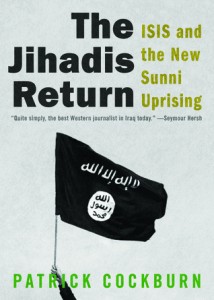
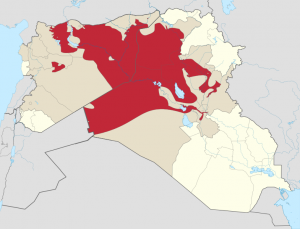
The Jihadis Return: ISIS and the New Sunni Uprising
In June of this year, the United States sent more troops to Iraq and carried out airstrikes to stop the advance of the Islamic State of Iraq and the Levant, known as ISIS into the Kurdish capitol Erbil. However, a more complicated situation has developed in Syria. The U.S., Western European, Saudi, and Arab Gulf policy is to overthrow Syrian President Bashar al-Assad, which is also the goal of ISIS and other jihadis in Syria. ISIS’s membership is between 10 and 17 thousand. We talk today with veteran Middle East correspondent Patrick Cockburn about his new book The Jihadis Return: ISIS and the New Sunni Uprising, about the origins of ISIS. We’ll also talk about the role of Saudi Arabia in the larger picture and in funding part of the Sunni terrorist groups, which was exposed by Wikileaks.
Patrick Cockburn:
- The Islamic State of Iraq and the Levant, which has turned into the new caliphate in western-northern Iraq and western Syria. It has come out of Al-Qaeda in Iraq.
- This organization that was linked to Al-Qaeda but not formed by Al-Qaeda after the invasion of Iraq in 2003 is very anti-Shia, Sunni fundamentalist is extremely violent.
- What makes it so effective is its a mixture of religious fanaticism and military efficiency.
- Some of the senior people of ISIS are former security officers and special republican guard officers from Saddam Hussein’s time.
- ISIS is led by a core of people who fought the U.S. in Iraq, fought the Iraqi Army, this is after 2003 and then after 2011 fought in Syria.
- So, it’s quite an experienced group.
- It had been growing stronger in Iraq over the last 3 years. It launched a series of campaigns, one of which to break its members out of prison.
- It had taken over quite big territory in Iraq then it had moved into Syria.
- It’s present in both countries, but its main effort was in Iraq this year.
- It always had strength in Mosul City, even though the Iraqi Army was in theoretically in charge but it would still levy protection money on people.
- Maybe 8 million dollars a month. I know contract men there paying half a million dollars a month.
- It’s final take over was swift and devastating. I can’t think of an example in history when 350 thousand men in the Iraqi Army, 650 thousand police simply disintegrated under an attack from under 3000 ISIS fighters.
- What really changed in 2011 when you had the uprising in Syria, primarily the Sunni Arabs of Syria, Iraq politicians said it would spill over into Iraq.
- The U.S. and its allies to a substantial degree were responsible for this. They backed the uprising against Assad. Even when it was apparent in the last 2 years that Assad wasn’t going to go.
- Wahhabism is the Islamic variant practiced in Saudi Arabia.
- There’s always been an alliance over the last 300 years between the preachers of this very puritanical, fanatical, violent and bigoted variant of Islam and the House of Saud.
- What they believe is not that much different from what ISIS believes. It’s very anti-Shia, the Shia seen as heretics worthy of death. It’s anti-Christian, anti-Jewish and deeply intolerant.
- Without the policies of Saudi Arabia and Pakistan, there wouldn’t have been a 911.
- Bin Laden was part of the a Saudi elite.
- Rather amazingly, the Saudis were let off scott-free.
- Kuwait has been a major financial supporter of the Jihadis, so has UAE, so has Qatar, the gulf monarchies as a whole if you like and so has Turkey.
- The problem with Obama and the U.S. is they have to decide what side they’re on. In Iraq, they’re supporting the government against ISIS, they’re supporting the Kurds against ISIS.
- But in Syria, the main opponent of ISIS is the Assad government but the U.S. policy is to weaken and displace that government.
- In a way, (the U.S. policy actually assists ISIS)
Guest – Patrick Cockburn is currently Middle East correspondent for The Independent and worked previously for the Financial Times. He has written three books on Iraq’s recent history as well as a memoir, The Broken Boy and, with his son, a book on schizophrenia, Henry’s Demons, which was shortlisted for a Costa Award. He won the Martha Gellhorn Prize in 2005, the James Cameron Prize in 2006, and the Orwell Prize for Journalism in 2009.
————————————————————

Please help support Law and Disorder, the show is now a sponsored project of Fractured Atlas, a non-profit arts service organization. Contributions for the charitable purposes of Law and Disorder must be made payable to Fractured Atlas only and are tax-deductible to the extent permitted by law.
Afghanistan War, CIA Sponsored Terror, Civil Liberties, Criminalizing Dissent, FBI Intrusion, Gaza, Guantanamo, Habeas Corpus, Human Rights, Military Tribunal, NSA Spying, Political Prisoner, Surveillance, Targeting Muslims, Torture, War Resister
Podcast: Play in new window | Download
Updates:
- Attorney Michael Smith Remembers 69th Anniversary of U.S. Dropping A-Bombs On Japan
- Atomic Diplomacy: Hiroshima and Potsdam: The Use of the Atomic Bomb and the American Confrontation with Soviet Power
—–
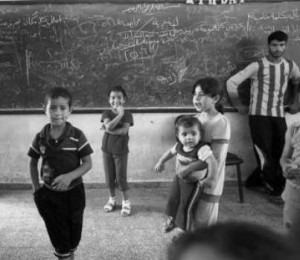
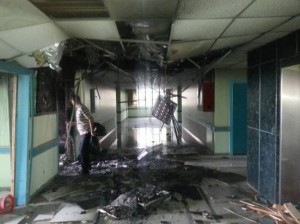
The Logic of Israeli Violence
Ongoing reports of Israel engaging in senseless cruel violence against Palestinian people in Gaza throughout Operation Protective Edge is not a random bombing campaign but a strategic war experiment in colonial management as Greg Shupak explains in his recent article The Logic of Israeli Violence. Shupak points out the attacks on civilians fleeing for shelter, the bombing of the medical infrastructure, fishing boats and wheat mills, killing Arab speaking journalists are in the larger plan of ethnicide and to render the Palestinian people dependent. His article reminds readers that there is a measured plan of attack to systematically erase the historic memory of the Palestinian society.
Greg Shupak:
- There’s good reason to believe according to some reporting by 97 Magazine and Max Blumenthal that the Israeli security forces knew quite perfectly well the teens were almost certainly killed as soon as they were abducted and yet they carried on this charade of pretending that they could be rescued in some way.
- Rocket fire from Hamas didn’t start until after Israel carried out strikes within Gaza, and carrying out various forms of killing Palestinian civilians and or people they described as militants.
- The rockets were a response to Israeli violence.
- Israeli propaganda has insinuated that these tunnels have in fact been used to kill Israeli civilians or that they may well be, but that simply has not happened.
- If the aim was to destroy tunnels, Egypt which is being ruled by a brutal regime, in its own right, was able to get rid of these tunnels without killing huge numbers of civilians.
- Israel’s aim vis a vis Gaza is to isolate Palestinians there from the outside world render them dependent on external benevolence and at the same time absolve Israel of responsibility toward them.
- The thesis I put forth about the current violence of Operation Protective Edge, is that one way Israel is attempting to achieve that goal, that goal of Jewish supremacy in historic Palestine with as much land as possible and as few Palestinians as possible is to aim to obliterate Palestinians as a people with the capacity to live independently in their homeland.
- The pattern of Israeli violence . . . is not only to kill and maim Palestinians but to impede their capacity to live autonomously in historic Palestine.
- It’s a settler colonial project.
- This is part of a longer term pattern. If you look at the work of Dr. Sarah Roy of Harvard she has documented extensively what she calls the deliberate de-development of the Gaza Strip economy. She has warned that Gazans are at risk for mass starvation.
- Five hospitals have been shut down. 24 health facilities have been damaged.
- We also that there’s been direct strikes on hospitals from Israeli fire.
- The ability of Palestinians to care for themselves has very much been undermined.
- Two thirds of Gaza’s wheat mills are inoperative, 3000 of its herders are in need of animal feed. We’ve seen fishermen attacked, we’ve seen attacks on agricultural sites, these are all part of those processes that Sarah Roy has talked about in the longer term.
- If religion is way for a cultural group to understand its identity then attacking the cultural institutions of that religion are ispo facto an attack on the people to have an identity.
- When you attack an educational institution you undermine the ability of a people to educate their young, to train them for future work, to train them to think critically, to develop artists, and inventors and so on.
- This to me is a very significant way for stifling a cultural groups independent existence.
- At its simplest, Israel can be seen as a giant military base for the United States.
Guest – Greg Shupak, a writer, activist and PhD candidate at the University of Guelph’s School of English and Theatre Studies. He teaches Media Studies at the University of Guelph, Ontario, Canada.
——–
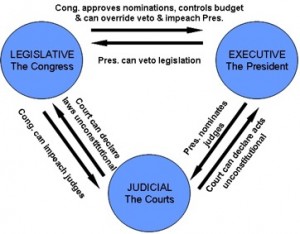
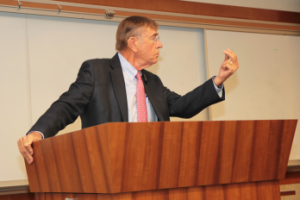
The National Security State: The End of Separation of Powers
Retired Professor of Law from Duke University Michael Tigar joins hosts to talk about his recent article The National Security State: The End of Separation of Powers published in the latest Monthly Review Magazine. Michael has explained how the Executive branch of government has come to dominate both the Judicial and Legislative branches of the United States government. Attorney Michael Tigar has been working on social issues for many years, his books include Law and The Rise of Capitalism, Fighting Injustice, and Thinking About Terrorism: The Threat To Civil Liberties In Times of National Emergency.
Attorney Michael Tigar:
- The basic principle of constitutional government that is established in our Constitution is that the actions of the legislative and executive branches, particularly the executive branch, are always reviewable by independently appointed judges and that the legality of whatever the executive branch does harms any protected interest, citizen or otherwise ought to be reviewable in the courts of the United States.
- The main thing about this is the harm to the judicial branch is in a real sense a self inflicted wound.
- That is to say judges confronted with assertions of executive power have proven inadequate to the task of restraining exercises of executive power
- We recall the massive illegality of the Japanese relocation at the beginning of the Second World War.
- It is now been shown that the premise upon which that relocation took place confining Japanese-Americans in concentration camps was false.
- At the time the Constitution was being debated Patrick Henry opposed the adoption of the Constitution on the ground that the ideal that independent judiciary could act as an effective check upon the exercise of executive power particularly military power was bound to be dis-proven in history.
- Law is legal ideology. That is to say its erected around social relations. In every time of recorded history there is a sense in which the formal guarantees that rules of law make about individual rights are simply lies the regime tells the people in order to sustain itself.
- That was the burden of book I wrote called Law and The Rise of Capitalism.
- The ideal that you rally people to the cause of social change by promising them liberty is also not new.
- The Cherokee people of Georgia read the Constitution and they said Aha, the Constitution guarantees that any group or individual can exercise certain social rights.
- So they drafted a Constitution for their nation and set up institutions then they brought suit against the state of Georgia to enforce these rights, that the letter of the American Constitution guaranteed that.
- What did Chief Justice Marshall say? What a minute, these are inferior and subject people. When the Constitution gives the right to all people, persons, citizens whatever, to bring lawsuits under Article 3 and to bring them to us, it wasn’t talking about these people.
- Michael Ratner you and others, courageous lawyers who have been struggling to get reviewablility of unlawful executive action should not give up the fight.
- The kinds of effort you make deserve support and turn out in historic context to be important.
- Historically the role of lawyers has been to articulate people’s claims for justice.
- What Edward Snowden and Julian Assange have done is reveal to the world fundamental defects in the way that the American political society has been operating and yet rather than saying thank you in some form of another, the government is hell-bent on prosecuting them.
Guest – Michael Tigar, a research professor of law. He holds expertise in Constitutional Law; Supreme Court; French legal system; criminal law and procedure; human rights. He is fluent in French. Tigar represented Terry Nichols in the Oklahoma City bombing trial. One of the most renowned lawyers in the country today, he has argued seven cases before the U.S. Supreme Court and more than 100 appellate cases. Tigar has written extensively about litigation, aspects of trial practice, criminal law, the death penalty, and the role of the criminal defense lawyer. His books include Fighting Injustice (ABA, 2002); Federal Appeals: Jurisdiction and Practice; and Examining Witnesses. In addition, he has written several plays about famous trials. Throughout his career, Tigar has been active in pro bono cases, the American Bar Association, continuing legal education programs, and international human rights. During the apartheid period, he went to South Africa to train black lawyers. Prior to joining AU, Tigar served as a professor at the University of Texas Law School.
—————————————————————————————–

Please help support Law and Disorder, the show is now a sponsored project of Fractured Atlas, a non-profit arts service organization. Contributions for the charitable purposes of Law and Disorder must be made payable to Fractured Atlas only and are tax-deductible to the extent permitted by law.
Afghanistan War, CIA Sponsored Terror, Civil Liberties, Criminalizing Dissent, Gaza, Human Rights, Military Tribunal, NSA Spying, Political Prisoner, Prison Industry, Targeting Muslims, Truth to Power, War Resister
Podcast: Play in new window | Download
Updates:
- Palestine Center For Human Rights: Current War Statistics On Palestinian Death Toll
- Two Laws Under Geneva Conventions: First All Attacks Have To Distinguish Between Military Objectives and Civilian Objectives. Second: You Can’t Just Kill Civilians Who Aren’t Participating in A War
- Michael Smith: Cultural Ethnicide – Keep Expanding Until Israel Takes Over
- Cultural Genocide Case: Illan Pappe – Ethnic Cleansing Of Palestine
- Naomi Wolf Walks Out of Synagogue When Nothing Is Said About Gaza
- Demonstrations Against The Murder and Violence Against Palestinians
- Michael Ratner Admonishes JFRED Jews For Racial and Economic Justice and Other GroupsTo Step Forward
- Michael Ratner Pulls Apart NY Times Article: Crises Cascade and Converge, Testing Obama
——-

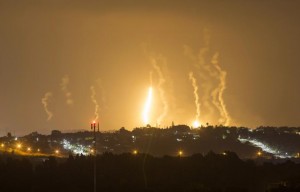
Michael Ratner Discusses 3 International Crimes That Can Be Attributed To Israel’s Actions Against Palestinians: Genocide, Apartheid and Crimes Against Humanity.
Attorney Michael Ratner:
- First International Crime: Genocide – There are two elements, one is the mental element, what you’re thinking, and the mental element is intent to destroy in whole or in part. Then it defines who you want to destroy. A national group which would be the Palestinians. An ethnical group, which has a common cultural heritage, racial or religious group. Second is physical, it includes killing members of the group, serious body or mental harm to members of the group. Inflicting on the group conditions of life calculated to bring about its physical destruction in whole or in part.
- A key term when I say in whole or in part is important.
- It says the perpetrators, the Israelis in this case need not intend to destroy the entire group.
Destruction of only part of a group, members living in one region is also genocide. They tried to get rid of all the educated people. They tried to get rid of the leaders. It pretty clearly fits the legal definition. So we have the crime of genocide and genocide of course can be prosecuted in the International Court of Justice.
That can be prosecuted by states who have their own universal jurisdiction.
If an Israeli general or politician travels to a country that will actually enforce its genocide laws that person can be prosecuted under the Genocide Convention and the laws that flow from it.
- Second International Crime: Apartheid – It’s defined as inhuman acts committed for the purpose of establishing and maintaining domination by one racial group of persons over any other racial group of persons and systematically oppressing them.
- Third International Crime: Crimes Against Humanity – It includes any of the following acts committed as part of a widespread or systematic attack directed against any civilian population. They include, murder, deportation or forcible transfer of population, imprisonment, enforced disappearance of persons, the crime of apartheid other inhumane acts of a similar character intentionally causing great suffering or serious bodily or mental injury.
Law and Disorder Co-host Attorney Michael Ratner, President Emeritus of the Center for Constitutional Rights (CCR), a non-profit human rights litigation organization based in New York City and president of the European Center for Constitutional and Human Rights (ECCHR) based in Berlin. Ratner and CCR are currently the attorneys in the United States for publishers Julian Assange and Wikileaks. He was co-counsel in representing the Guantanamo Bay detainees in the United States Supreme Court, where, in June 2004, the court decided his clients have the right to test the legality of their detentions in court. Ratner is also a past president of the National Lawyers Guild and the author of numerous books and articles, including the books Who Killed Che? How the CIA Got Away With Murder, The Trial of Donald Rumsfeld: A Prosecution by Book, Against War with Iraq and Guantanamo: What the World Should Know, as well as a textbook on international human rights.
——-

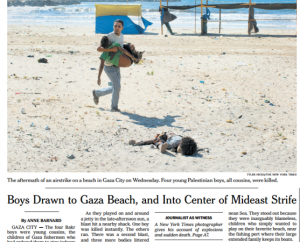
Western Media Coverage of Israel Gaza Violence
Last week we interviewed Phil Weiss of Mondoweiss and talked about the media’s role in reporting facts and detailing the history around the escalating violence against Palestinians by the Israeli military. Specifically in the discussion, Phil believed that what he considered better media analysis of the Middle East situation and some other factors, might prevent a ground assault against Gaza. Michael Ratner and Michael Smith both disagreed with Phil believing that it wasn’t just about media coverage or a little better media coverage but the question of a ground assault went to a much deeper issue. 3 hours later unfortunately Michael Smith and Michael Ratner were proven correct.
Jim Naureckas:
- I think the first thing you have to say of this issue is that the loss of human life has been overwhelmingly on one side.
- I think that needs to be clear in the coverage.
- What you’re getting is a coverage on the whole attempts to that treats both sides evenly as if the trauma is equally split between the two sides.
- The latest figure is 161 children killed in Gaza.
- And to treat the worries of Israelis as important or more important than the death of 161 kids I think is revolting.
- There was a poll a while back showing that when people heard the word “occupied territories” a lot of people think that the Palestinians are occupying Israeli territory because the media so rarely explain what’s going on.
- They’re not explaining what the situation is between Gaza and Israel and so you get coverage of the rockets as if they are the main problem.
- It’s really a cockeyed way of viewing the situation I think.
- We were talking about the headline that was changed in the New York Times after the beach massacre when Israel bombed kids playing soccer on the beach and killed 4 boys.
- The original headline was “Four Young Boys Killed Playing On Gaza Beach” which I might note leaves out the active subject of that sentence it doesn’t say who killed them.
- By the time it made it to print, the headline had been changed to “Boys Drawn To Gaza Beach And Into Center of Mideast Strife.”
- You see the underlying bias in these examples.
- Another is 13 Israeli soldiers, 70 others killed. A lot of readers are going to read that and when you say 13 soldiers and 70 others, you’re going to read that as 70 other Israelis who weren’t soldiers were killed.
- On MSNBC there was a contributor, a Palestinian American, Rula Jebreal, who was discussing this case and the coverage in general of MSNBC, and was critical of the amount of air time given to Israeli officials versus the amount of time given to Palestinians to discuss the conflict.
- After making these criticisms, within hours, she had her contract canceled by MSNBC.
- She was actually brought back on not as an MSNBC contributor but as a Palestinian journalist to talk to Chris Hayes, and Chris Hayes defended her firing.
- In this particular conflict 100 U.S. Senators voted to declare their support for Israel with no mention of the Palestinians who are dying.
- Michael Smith: 100 to zero. What does that say about democracy?
- I think its safe to say there’s more dissent in U.S. media than in U.S. government about the attack on Gaza.
- I think that the rise of social media has effected the coverage.
- When you’re doing a story about people treating war as a spectator sport and don’t mention that people are dying in the war, you are really treating war as a spectator sport.
- We’re writing about this daily on our blog FAIR.org. You can also hear us talking about these issues on Counterspin.
Guest – Jim Naurekas, Extra! Magazine Editor Since 1990, Jim Naureckas has been the editor of Extra!, FAIR’s monthly journal of media criticism. He is the co-author of The Way Things Aren’t: Rush Limbaugh’s Reign of Error, and co-editor of The FAIR Reader: An Extra! Review of Press and Politics in the ’90s. He is also the co-manager of FAIR’s website. He has worked as an investigative reporter for the newspaper In These Times, where he covered the Iran-Contra scandal, and was managing editor of the Washington Report on the Hemisphere, a newsletter on Latin America. Jim was born in Libertyville, Illinois, in 1964, and graduated from Stanford University in 1985 with a bachelor’s degree in political science. Since 1997 he has been married to Janine Jackson, FAIR’s program director.
————————————————————
Afghanistan War, CIA Sponsored Terror, Civil Liberties, Criminalizing Dissent, Gaza, Human Rights, Military Tribunal, Political Prisoner, Surveillance, Targeting Muslims, Torture, Truth to Power, War Resister
Podcast: Play in new window | Download
Updates:
- Swedish Judge Denies Assange Lawyers Request To Set Aside 2010 Arrest Warrant On Sexual Misconduct Allegations
- Torture Memo Author John Yoo Awarded Endowed Faculty Chair At University of California Berkeley School Of Law
- Michael Ratner: The Trial of Donald Rumsfeld
—–
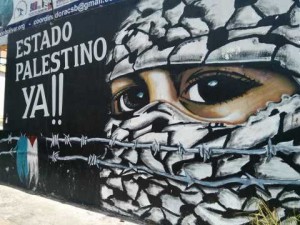
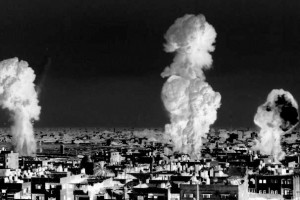
Israel’s Continued Disproportionate Use Of Force Against Palestinian Civilians
In a slow escalation of violence in the Gaza Strip, the Israeli Army responded earlier this month by launching “Operation Protective Edge” as Israeli jets dropped hundreds of bombs on the impoverished coastal enclave of nearly 2 million Palestinians. At this time, more than 200 Palestinians have been killed and more than 1400 injured. According to the United Nations, 77 percent of those killed are civilians and yet the massacre sadly continues. The vicious attacks are framed as a mutual conflict or exchange of fire. The reality is that the low quality rockets hitting Israel are not comparable to Israel’s powerful military strikes.
Phil Weiss:
- In a nutshell I think Israel is trying to destroy the unification agreement between Hamas and Fatah. They don’t want diplomacy they want to end that unification deal.
- It’s a great danger to Israel that the Palestinians are united, they want them divided.
- They’ve used any pretext they can in the last month including the horrifying abduction and killing of these Israeli teens on the West Bank. They’ve used any pretext they can to break up, to try to break up that understanding.
- The goals of a unified Palestinian government are to achieve some type of Palestinian freedom.
- They would go on to International Criminal Court, International bodies and say hey, this occupation has been going on nearly 50 years . .. are you finally going to give us a state, sovereignty? If we can’t get sovereignty we’ll move to an equal rights struggle. .
- I think the good thing that they show is there’s no green line. Israel operates with impunity, with complete autonomy all over historic Palestine. Netanyahu has said we’re never giving up the West Bank. It’s sort of an announcement to the world, this is one state.
- The legal response and the one you demonstrated (Michael Ratner) against Cast Lead was this is Internationa Humanitarian Law and Human Rights law apply here and Israel should be brought up before International bodies for violating those laws.
- The one form of progress is there’s no ground invasion this time. (this is what he thought at the time)
- Michael Ratner, you and I have a somewhat different relationship to the mainstream press in that I used to be part of it and now and then I have fantasies of getting back in.
- With that proviso, I think there has been a little bit of progress in the mainstream so you have on NBC news, you have words opening that report saying these people are trapped, they have no where to go and its a lopsided conflict. I didn’t hear that around Cast Lead.
- I’m not trying to defend the mainstream so much to say that I feel that there is some real shift going on.
- Michael Ratner: Here’s a question about half-full. Do you want me to call the family that lost 17 kids in the same household in Gaza? That’s not half-full. That’s empty.
- You’re putting me in the position of saying what I’m about to say which is the slaughter of 200 people is different from the slaughter of 500 people.
- Michael Ratner: We’re still counting Phil.
- The Jewish American community is highly responsible for this behavior, for this conduct that’s going on there.
- How useful was that aircraft carrier (Israel) when we were occupying Iraq and we were invading Afghanistan? It wasn’t at all useful to us.
- I think its a burden (Israel) I think it’s a millstone around our necks because it says the United States stance is slaughtering brown people.
- You look at J Street, this great liberal Zionist organization. They’re justifying everything Israel is doing now.
- There’s only a couple of Jewish organizations that stood up and said this is wrong. Jewish Voices For Peace and Jews Say No.
- I think there’s an implicit understanding around the world now about why these people are firing rockets.
- One of things you hear in Israel is the existential threat, in that people are delegitimizing us and I think that’s great news.
- I see more voices talking about this conduct as just beyond the pale. I feel that the world is regarding this as a central human rights issue.
Guest – Philip Weiss, founder of Mondoweiss, longtime journalist and regular contributor to the Nation and a fellow at the Nation Institute. Philip is the author of two books a political novel, Cock-A-Doodle-Doo, and American Taboo, an investigative account of a 1976 murder in the Peace Corps in the Kingdom of Tonga. Weiss is one of the editors of The Goldstone Report: The Legacy of the Landmark Investigation of the Gaza Conflict.
——–
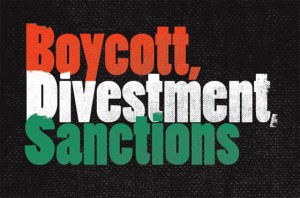
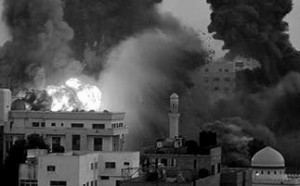
Andrew Kadi:
- I don’t necessarily know that Israel has any real goals that will benefit Israeli society other than possibly the ethnic cleansing of Palestinians in Gaza, forcing them to move out.
- They’re leaving Gazans in deplorable conditions. They have unilaterally absolved themselves of their legal obligation under International law to the population in Gaza and have instead declared something that I think nobody else recognizes that Gaza is somehow a hostile territory or an enemy territory.
- It’s counter-productive if your belief that the goal or the end goal for the Israeli government is peace.
- The majority of these rocket attacks are pretty small projectiles as anyone who has seen them knows has no chance of actually injuring anyone or causing damage. Some of them are as small as a Coke can.
- Hamas has deployed larger rockets in last 4 years that can fire through a building. ‘
- By and large these attacks are being carried out by other groups round the clock. The ones that Israel is referring to are usually other groups that have nothing to do with Hamas.
- I would say the rocket attacks are a cry for help from Gaza.
- In the end, Gazans are isolated, there’s a siege, a blockade that Israel’s carrying out. I think that Gazans don’t want to be subject to it anymore.
- They want to be able to live like any other population.
- The American Foreign Services committee published a list of American companies directly involved and complicit in the attacks on Gaza.
- Those companies include Boeing, Hewlitt Packard, Elbit Systems, Lockheed Martin, General Dynamics, General Electric, Northrup Grumman, Raytheon.
- In 2005, Palestinian civil society called for a Boycott, Divestment and Sanctions against Israel until it complies with the 3 tenets of International law.
- The end of the occupation, equality for the Palestinian citizens of Israel and the right of refugees to return to their homes.
- Other companies that folks can boycott, Sodastream, Ahava cosmetics, Strauss Group, Osem – Tribe Hummus, Sibeon Company.
Guest – Andrew Kadi, a human rights activist and digital media specialist currently serving on the Steering Committee of the US Campaign to End the Israeli Occupation. He’s contributed to the Guardian’s Comment is Free, The Electronic Intifada, Mondoweiss, Left Turn and other publications.
————————————————————

























